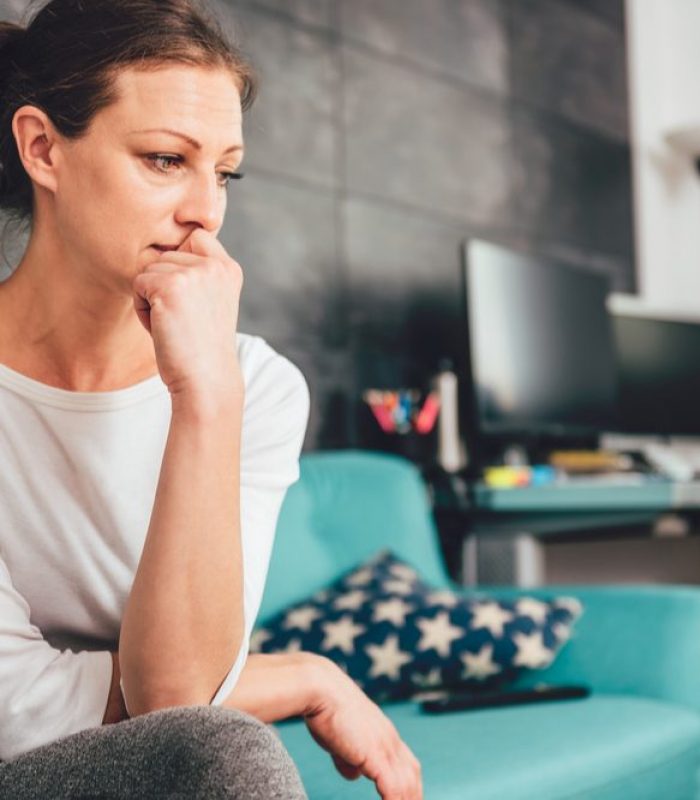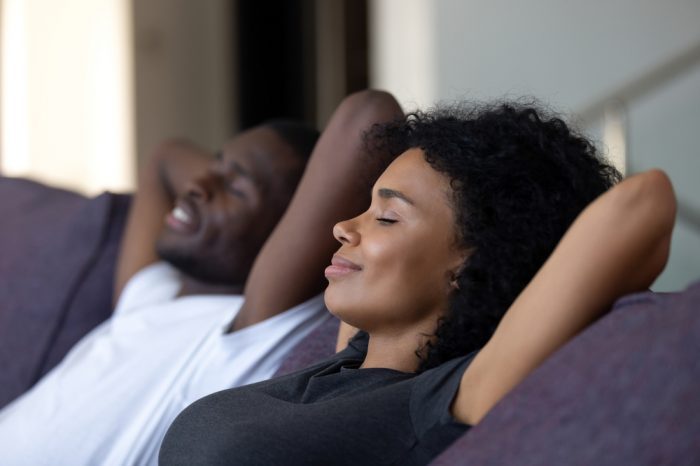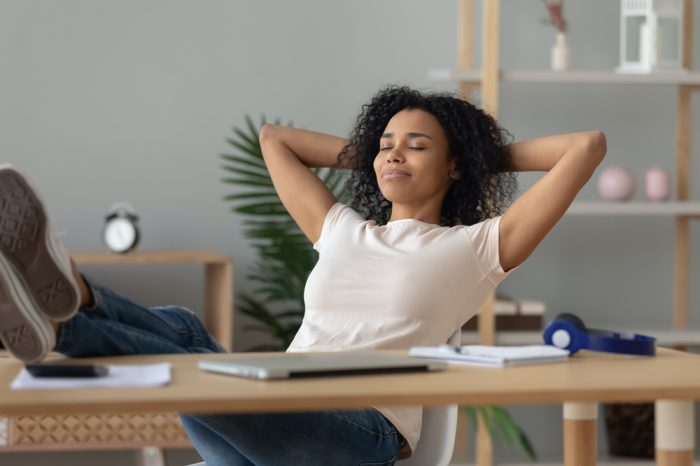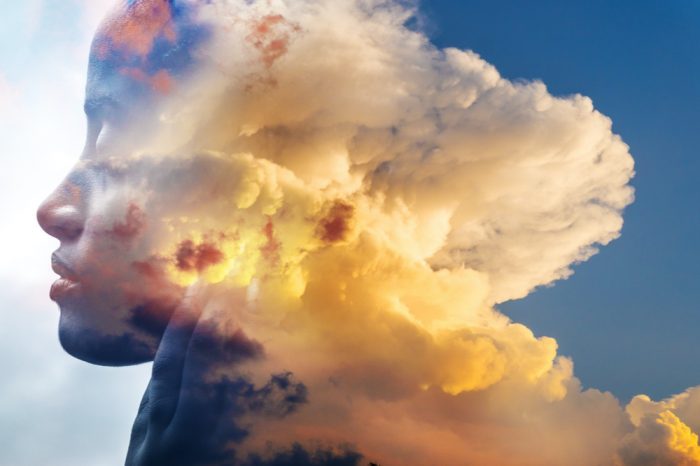Don’t worry, there is a right strain for you that will not pair cannabis and anxiety.
Cannabis can be a double-edged sword. On the one hand, stress and anxiety are one of the main reasons people use cannabis, but on the other, paranoia and anxiety is a primary side effect for so many. What gives? Why is there such a difference in experience from one person to the next? Cannabis and anxiety are not meant to be a thing, and the right strain for you is out there.
I am one of the people who can no longer tolerate heavy THC strains. In the heyday of my teenage years, I gobbled up any bud that came my way, no matter what its cannabinoid content. I giggled and munched my way into my twenties, happily smoking weed at parties and in social situations. But then, for whatever reason, I experienced a drastic change in how cannabis affected me.
I started to realize that what was once an enjoyable experience became more about ‘holding-on’ until the experience subsided. I felt uncomfortable at parties, I suddenly felt limited in conversation and generally clammed up even with close friends. Like many people around me, I’d gone from enjoying the casual puff to fearing it.
It’s All About the CB1 Receptors
Cannabinoids, like THC and its much subtler cousin CBD, all interact with our endocannabinoid system. This system, responsible for our mood, appetite, pain, inflammation and much more, is a series of receptors and naturally produced endocannabinoid signalers. Essentially if something goes haywire in our bodies, this system kicks in and tries to return the body back to normal.
Learn more about CB receptors: Looks Like the CB1 Receptor Encourages Addiction and CB2 Breaks It.
THC, which is the only psychoactive cannabinoid in cannabis and responsible for the ‘high,’ is also the only known cannabinoid to lock directly with the CB1 receptor. This endocannabinoid receptor is found exclusively within our brain, and like a hand fitting into a glove, the THC locks into the open receptor. It’s likely this strong connection why the THC-CB1 relationship triggers an altered state of mind.
According to James Giordano, professor of neurology and biochemistry at Georgetown University Medical Center, overexposure to THC can change the CB1 receptor, especially over prolonged periods of time. In some cases, like mine, it has become overly sensitive to the THC, making even a tiny dose seem overwhelming. Other people experience the opposite, where THC exposure desensitizes the receptor so that the paranoia subsides and the experience is increasingly euphoric.
This aligns with the advice of cannabis-practitioners. As noted by Mara Gordon, MD founder of Aunt Zelda’s, elderly patients have a very high sensitivity to THC compared to younger people. She explains two examples: a dose of THC for a child fighting cancer versus an elderly patient with the very same diagnosis. In her experience, the doses will be drastically different for each scenario. Surprisingly, according to Gordon, the child can tolerate much higher levels than the older patient due to the immaturity of their endocannabinoid system.

Find the Perfect Strain for Mental Health and Avoid the Anxiety
Part of the reason some strains are anxiety-triggering is their chemical composition. Today, most strains found at your local dispensary are focused almost exclusively on high THC levels. Even if you’ve discovered a strain perfect for pain control, it might not be suitable based on THC. What is more important is investigating the the minor cannabinoids, and terpenes that balance out the psychoactive THC.
These lesser cannabinoids and terpenes may not always be carefully measured, but if you are prone to anxiety like I am, they are worth a little background research before purchasing your next product. Keep in mind strains, and chemical compositions are not always as advertised, and can differ between producers, but the following advice is, at the very least, a good place to start.
Cannabinoids That Treat Your Anxiety
First and foremost, look for CBD-heavy strains. The more CBD, the lower the potency of THC. Cannabidiol naturally reduces the length and strength of the relationship between the CB1 receptor and THC. Other cannabinoids, like CBN, may hold promise but there is little study thus far on the subject.
There is also strong preliminary evidence to support CBD, on its own, as a natural anti-anxiety therapy. Many of the early stage human trials have shown both selves reported, and measurable physiological reductions in stress after CBD treatment. When in doubt on how to avoid anxiety, seek out full CBD strains.
Terpenes That Treat Anxiety
Terpenes, the naturally produced aromatic compounds responsible for the smells and flavors of cannabis, are also useful for anti-anxiety strains. There are three terpenes in particular which, provided more research, may prove to have substantial anti-anxiety effects. These include limonene, myrcene, and trans-nerolidol.
Terpenes You Need to Have in Your Life: 8 Major Terpenes in Cannabis That Improve Your Health
Terpenes are not as well established at the dispensary as the primary cannabinoids, but with a little careful preliminary digging, you can find the information. Ask for lab results for confirmation.

Strains for Anxiety
The safest bet to avoid anxiety is to look for strains with at least a 1:1 ratio of CBD to THC. The following strains are a good place to get started:
- Charlotte’s Web
- Pennywise
- Stephen Hawking Kush
If you are less sensitive to the THC component and are open to exploring cannabis strains based on their terpene profile, look for cannabis with citrusy, mango, and jasmine tea undertones. For example, the following strains contain these aromatics:
- Skywalker OG
- Jack Herer
At the end of the day, everyone reacts differently to the medley of terpenes and cannabinoids found in cannabis. What reduces anxiety in one person, may trigger the opposite effect in another. The research is ongoing about the therapeutic values of various cannabis compounds, and how to determine an accurate and safe dose for everyone based on their medical history. Remember, start low and go slow if you are concerned about anxiety and cannabis.





